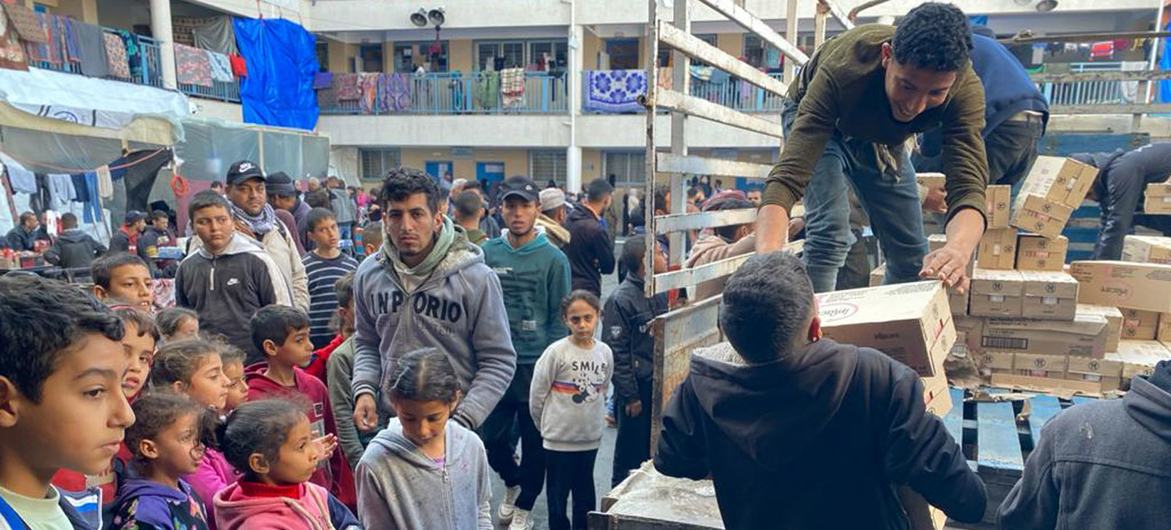UN Warning: Fuel Shortage in Gaza Threatens Humanitarian Operations and Increases Suffering

The United Nations Relief and Works Agency for Palestine Refugees (UNRWA) has confirmed that its teams continue to provide support to the most vulnerable groups in Gaza, despite the increasing challenges resulting from a severe shortage of essential supplies.
The agency stated in a statement posted on its official Facebook page that its clinic in Gaza "has seen an increase in cases of malnutrition since last March, when the blockade imposed by the Israeli government began," noting that "UNRWA has not been allowed to provide any humanitarian aid since then."
It added: "Despite the severe shortage of essential supplies needed for treatment, our teams continue their work in Gaza to assist the most vulnerable groups, including through conducting nutritional assessments for children."
UNRWA's statement coincided with a joint warning issued by seven UN agencies, including the Office for the Coordination of Humanitarian Affairs (OCHA), the World Health Organization, and the World Food Programme, that "the fuel shortage in Gaza has reached critical levels," threatening to disrupt vital services.
The agencies emphasized in a joint statement that "fuel is the lifeline for survival in Gaza," pointing out that "without sufficient fuel, Gaza faces a collapse of humanitarian relief efforts." They also warned that "agencies may be forced to halt their operations entirely" if fuel is not provided urgently.
The United Nations highlighted that a fuel shortage would lead to the disruption of hospitals, water and sanitation networks, stating: "Without fuel, bakeries and community kitchens cannot operate. Water and sanitation production systems will stop, depriving families of safe drinking water while waste and sewage accumulate in the streets."
They added that "these conditions expose families to deadly diseases and bring the most vulnerable groups in Gaza closer to death," especially in the absence of widespread food security after nearly two years of war.
This warning comes days after the first fuel shipment entered Gaza in 130 days, with 75,000 liters being delivered. The UN agencies described this development as "welcome," but stressed that this quantity represents "a small part of what is required daily to sustain daily life and continue vital aid operations."
They emphasized that "fuel must be allowed into Gaza in sufficient and regular quantities to support life-saving operations," warning that "the current situation places the population on the brink of famine."
It is worth noting that Gaza has been experiencing a severe fuel crisis since the beginning of the conflict between Israel and Hamas, exacerbating the suffering of the population amidst the destruction of infrastructure and the decline of basic services.